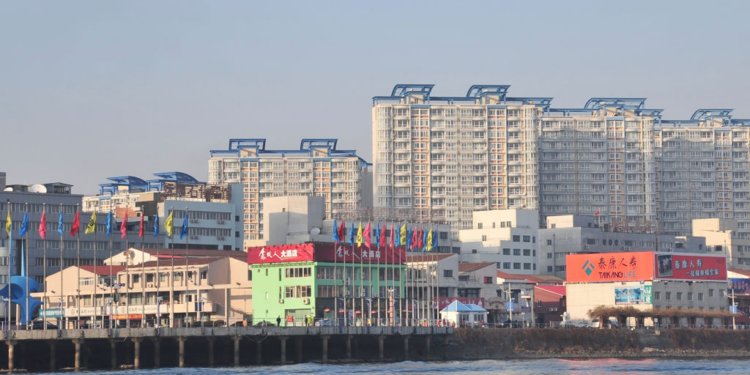For average working professionals in Beijing, Shanghai, or Hong Kong, buying a place for themselves would be a mission impossible. With skyrocketing housing price and relatively low incomes, it is destined that most working professionals will not have a chance to afford a place in the cities that they work hard in.
Yet in the other parts of the country, housing markets seem to be on the total opposite: With low demand and shrinking population, these houses are now on the list for 50% off discount, and some of them even start to worth less than $3,000 for a whole department.
Hegang, a city located in the Northeastern Heilongjiang province of the country, became one of the most prominent examples of the declining housing markets in China’s less developed regions. A 46 square meter apartment is only listed at 16,000 RMB, a value that is less than $3,000. Imagine that you can buy an apartment in urban areas with merely one-month salary, here you have it, in China’s shrinking smaller cities.
The devastating housing market in Hegang reminds people of the past disastrous history in Erdos, where real estate businesses’ over-expansions led the city into a ‘ghost-town’. With supplies overweigh the limited demands of houses in the city, Erdos’ housing market failed completely as a result of poor management and overestimation of the city’s consumption capacity.
The housing market in Hegang showed complete different pictures from those in Beijing, Shanghai, and Hong Kong. It leaves people confused and baffled. The inequality and the differences in prices are too large to explain, and a 50 square-meter apartment in Beijing is simply just too different from that 50 square-meter apartment in smaller cities.
Several factors and reasons could potentially explain the declining housing prices in Hegang. The outflow of capitals and population are the main factors that drove down the housing prices. With fewer demands and fewer job opportunities, urban residents are leaving the town for better jobs with better pays.
Families that are moving away would not only be out of the buyers’ market, but will also be actively engaged in selling their old houses to cash out from a city that they would not go back to. With more and more people flooding into larger cities such as Beijing, Shanghai, or locally speaking, Harbin, houses in the county-size town are certainly becoming increasingly less attractive.
Yet different from the case of Erdos, in which the real estate businesses are becoming the essential party to blame, situations in Hegang is simply an ongoing trend that is gradually taking place in China. County-size cities are dying as larger cities are easing up its household registration requirements. With better infrastructure, education, and job opportunities in larger cities, smaller ones are losing out in this competition and are on their paths to diminish and eventually, fade out.
It is also a different process than urbanization, where excessive labour forces are mobilized to leave the rural areas for jobs in the city. The ongoing migration trend that is happening in China are between-cities: From smaller cities to larger ones, and from regional centers to the national centers. It is a form of chain migration, where everyone wants to make a step up to go to a city that is better than the one their past generations resided in.
This is becoming a trend of centralization, where young talents are moving towards economic centers and regional centers for better opportunities and potentially an opportunity to stay. The process of centralization provides two different scenarios in the housing markets on the two diverging ends: In smaller cities, where people emigrate out of, housing markets are starting to shrink and eventually vanish.
On the other end of the market, houses in metropolitan areas such as Beijing and Shanghai are never short of buyers. Even with strict purchasing restrictive policies and tough requirements to obtain a local household registration status, housing prices in cities such as Beijing and Shanghai will not likely to decline in the short run.
These cities, with limited areas and land, will eventually turn into a Hong Kong style housing market: A family of four may be forced to settle in a very small apartment, and the land size per capita will be decreasing drastically.
The increasing inequalities is leaving people’s life in very uncomfortable positions. While all good opportunities are in the economic centers, staying in the city and buying a place of their own is becoming a mission impossible, let alone the stringent requirements to become an actual Beijinger, a person with valid Beijing area household registration status. Yet on the other hand, it does not take long for people to realize that moving to a smaller city will significantly decrease one’s standard of living in a rapid pace.
In order to have an organic and sustainable economy, China needs to do a better job in balancing the developments in different regions. While the country is successful in building up world-class cities such as Beijing and Shanghai, the local and central government now needs to invest to ensure that other regional centers are with the same capacity to become future potential economic hubs that can generate well-paid jobs and attractive opportunities
Source: pandaily






